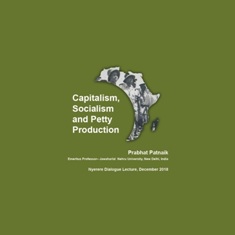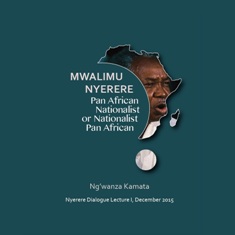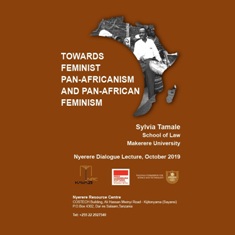Capitalism, Socialism and Petty Pro BOOK
In this 2018 Nyerere Dialogue Lecture, Emeritus Professor Prabhat Patnaik, discusses the place of petty production in the development trajectory of the countries of the global South. The received wisdom over the last half a century in the mainstream development economics has been that petty production in agriculture, that is peasant production, is a backward mode of production. The path of development lies in the industrialization and chemicalisation of agriculture. This is the path that developed European economies are supposedly to have followed in their journey to modernisation. Modernity is understood to mean capitalist modernity.
For over a decade now, heterodox and progressive political economists from the South have questioned this Euro-centric narrative of development. First, they argue, that the European and later American capitalist development has always been a worldwide system in which the South has been intimately imbricated. On the labour side, the surplus labour thrown out of agriculture as a result of penetration of capital and enclosure movement in the Europe was only partly absorbed by the industrial sector.
Secondly, the South does not have other geographical places to absorb their surplus population nor external sources of capital. It has to rely on its own people and resources to chart its autonomous path of development. To embark on the path of self-reliant autonomous development, the peripheries will have to de-link from imperialist centres in the first place, generate and mobilise internal sources of capital in the second place, and ensure that their path of development does not generate surplus population and that it does not degrade climate and ecology, in the third place. It is in this context that Patnaik and other progressive political economists from the South have argued that rather than condemn the peasantry as backward, the peasant should be placed at the centre of the autonomous development trajectory.
We hope that the publication of this lecture will re-open the debate, long lost in the thickets of neo-liberalism, on the alternative vision and path of development.




